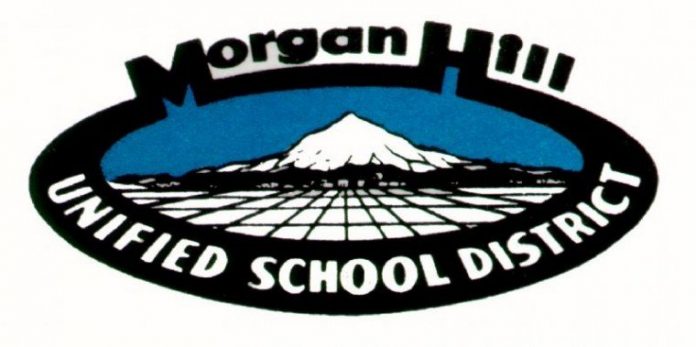No decision was made Monday morning in the first courtroom
hearing of the civil rights lawsuit against the Morgan Hill Unified
School District and two former Live Oak High School administrators
over the American T-shirt controversy from Cinco de Mayo last
year.
No decision was made Monday morning in the first courtroom hearing of the civil rights lawsuit against the Morgan Hill Unified School District and two former Live Oak High School administrators over the American T-shirt controversy from Cinco de Mayo last year. Judge James Ware, of the U.S. District Court for the Northern District in San Jose, said he was “inclined to deny” the motion by the defendants to rid MHUSD from responsibility because there is no live case or controversy, argued Alyson Cabrera, the lawyer representing MHUSD, former principal Nick Boden and former assistant principal Miguel Rodriguez.
Ware cut short the allotted 15 minutes for both Cabrera and lawyer William Becker Jr., who represents the three of boys named in the lawsuit on their parents’ behalf, after cases heard prior to Dariano v. MHUSD were given too much time before the 11 a.m. break.
Ware said he will review the statements by both counsels and issue a written judgment on whether to grant the dismissal.
The defendants’ motion to dismiss is based on Article III of the Constitution that states courts can’t hear cases that do not pose a controversy – the basis of their argument because the school district maintained that it does not prohibit patriotic clothing and because the “sole decision maker” former principal Nick Boden no longer is employed by the district.
However, Ware said the grounds for dismissing the MHUSD from responsibility based on Article III could be flawed.
“My sense of it is I need to take jurisdiction to make a judgment,” Ware said. He said that didn’t necessarily mean the case would see its day in trial.
The suit was filed June 23 based on an incident May 5, 2010 on the campus of Live Oak High School when four male students were sent home for refusing to remove American T-shirts and apparel after Boden and Rodriguez were concerned about the potential for violence on campus. Since then, Boden has submitted a sworn statement that he was the sole decision maker that day and Rodriguez was only acting on his direction. That day, the boys said their First Amendment rights were stripped. Other LOHS students were seen wearing the colors of the Mexican flag on campus, though were not asked to remove their clothing and no other students were sent home or asked to turn their clothing inside-out.
Superintendent Wes Smith released a statement May 6 following a barrage of media reports saying that he nor the district condoned the decision made by Boden and that there is no policy prohibiting students from wearing patriotic clothing.
The parents of the boys who filed the suit are seeking nominal damages against Boden and Rodriguez for violating their son’s First and 14th Amendment rights, which Rodriguez reportedly called “incendiary” that day. Also, they are seeking “prospective” relief against MHUSD to insert a policy that is specific – not vague as Becker describes the current policy – and ensures no other student’s rights will be shed at the school gates just as it was decided in the Supreme Court decision of 1969 Tinker v. Des Moines Independent Community School District when it was ruled that “it can hardly be argued that either students or teachers shed their constitutional rights to freedom of speech or expression at the school house gate.”
Cabrera argued that because Boden and Rodriguez are no longer employed at MHUSD, the possibility of this exact incident occurring again is impossible and so the prospective – or lasting – claim of the case should be dismissed to change school policy.
The district’s administration will not forever be employed, Becker said, therefore there is an opportunity in the future for history to repeat itself. The plaintiffs want students’ rights protected at MHUSD.
“What has happened, is the students’ ability to express themselves, their rights, have been chilled,” Becker said after exiting Ware’s courtroom with two parents of the students he’s representing: Joy Jones and John Dariano. No Live Oak students were present.
Superintendent Wes Smith also attended the hearing, though he did not speak before Ware. Both parties’ respective lawyers are speaking on their behalf. Cabrera declined to comment.
“I would be shocked if the if the court were to believe at this stage … that (we) would be barred from putting our evidence to a (jury) that the policy is vague and leaves too much discretion in the hands of school officials,” in deciding what speech is protected by the First Amendment, Becker said.
“More speech is better than less speech,” Becker said during the hearing.
During the hearing, Ware reacted to a statement by Becker after he explained that the holiday of foreign nations were being celebrated at LOHS that day, while students were told they could not celebrate their own nation.
“This nation is full of immigrants and foreign-born citizens from all over the world. Holidays like Bastille Day and Cinco de Mayo are celebrated here. I wouldn’t regard it as a foreign nation’s holiday,” Ware said.
Becker said afterward Ware seemed to view his point as hostile.
“Our country grants all students the right to express themselves. If you’re going to enforce this policy, you have to enforce it co-extensively and not deprive both sides,” Becker said.
Ware is expected to issue a written response to the motion soon.
“My intent is not to dismiss it but to move it quickly as I can to my jurisdiction,” he said.
The plaintiffs are John and Dianna Dariano, parents of Matt Dariano, 16; Kurt and Julie Ann Fagerstrom, parents of Dominic Maciel, 15; and Kendall and Joy Jones on behalf of Daniel Galli, 16. They are co-represented by the Becker Law Firm in Los Angeles and the Thomas More Law Center in Ann Arbor, Mich.
The First Amendment to the Constitution protects the right to freedom of religion and to the freedom of expression, which consists of the rights to freedom of speech, press and assembly and to petition the government. The due process clause of the Fourteenth Amendment protects the rights in the First Amendment from interference of state governments.














